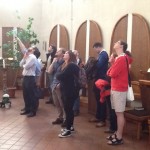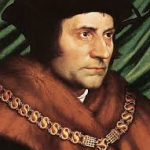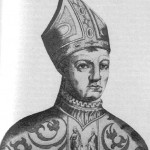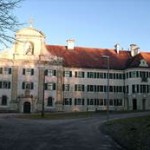
A tale of three cities: Constantinople 1453, Belgrade 1456, Olomouc 1468
A tale of three cities: Constantinople 1453, Belgrade 1456, Olomouc 1468 In my essay ‘Giovanni da Capistrano and the crusade of 1456’, published in 2004 in Crusading in the Fifteenth Century, ed. Norman Housley, I briefly (pp. 112-13) made reference to a fresco in the Church of the Immaculate Conception in Olomouc. The church, which […]

Wolf Hall, Thomas More and the Turks
Wolf Hall, Thomas More and the Turks One of the joys of the BBC’S outstanding dramatization of ‘Wolf Hall’ is its historical accuracy. While each programme is being broadcast, Tudor historians ecstatically tweet away pointing out how much the series is getting right – though there are minor slips like showing wisteria, which apparently was […]
Two fifteenth-century prelates and crusading – Piccolomini and Cusa
Two fifteenth-century prelates and crusading – Piccolomini and Cusa The Church produced some outstanding figures in the fifteenth century and none more so than Aeneas Sylvius Piccolomini (1405-64), who became pope in 1458 as Pius II, and Nicholas of Cusa (1401-64), who was made cardinal in 1448. They make for an interesting comparison. Piccolomini hailed […]

Seeing double: Pope John XXIII – Baldassare Cossa
Seeing double: Pope John XXIII – Baldassare Cossa – For anyone familiar with the history of the fifteenth century, Sunday’s (27th April 2014) canonization of Angelo Giuseppe Roncalli, or John XXIII, was somewhat surreal. For he was not the first pope to bear that name and number. Between 1410 and 1415 another Italian, Baldassare Cossa, […]

The perils of performance management in fifteenth-century Germany
The perils of performance management in fifteenth-century Germany The Council of Constance (1414-18) is famous for bringing the Great Schism to an end and for burning the Czech reformer Jan Hus, precipitating the series of Hussite crusades (1420-31). But the council also called for the reform of Catholic Europe’s plethora of religious orders, and in […]

Recent Comments